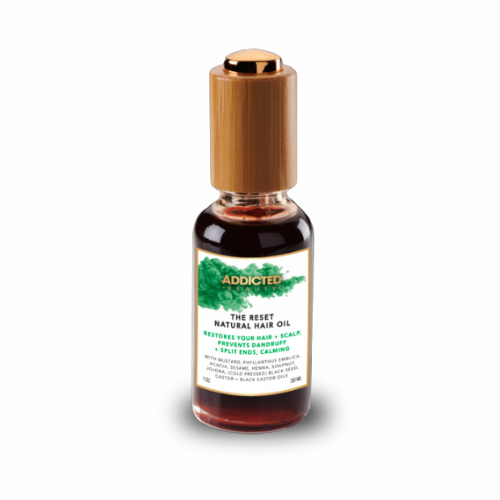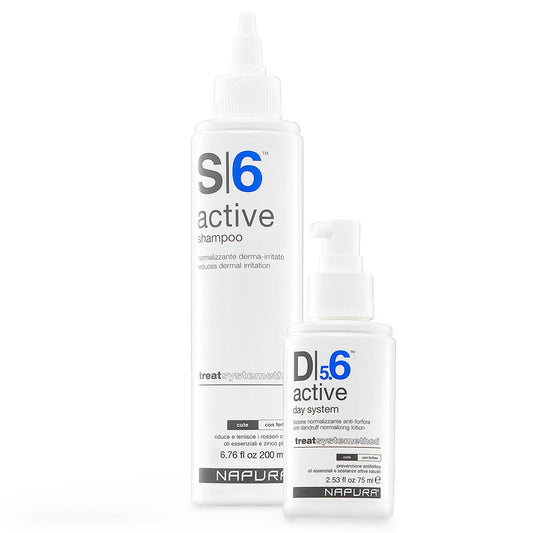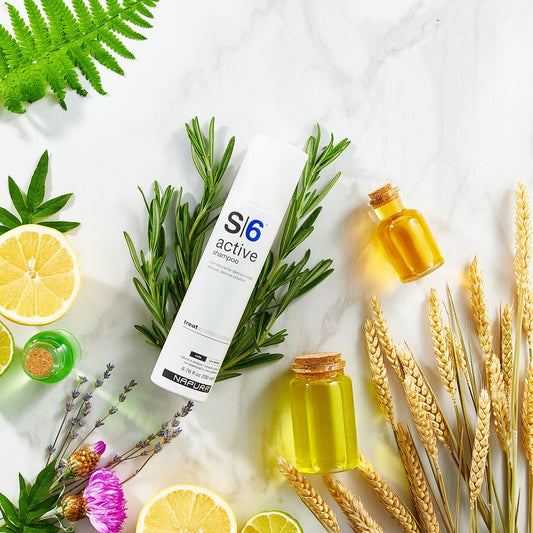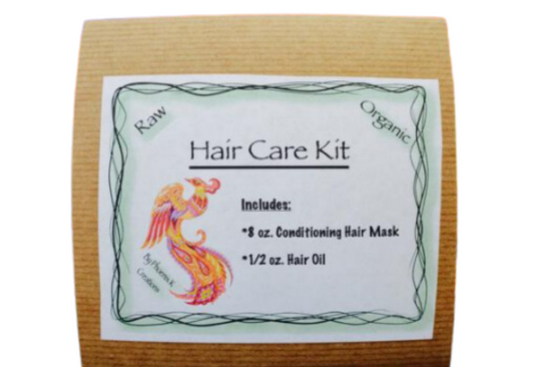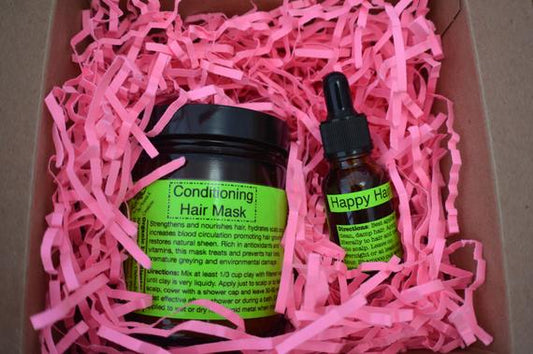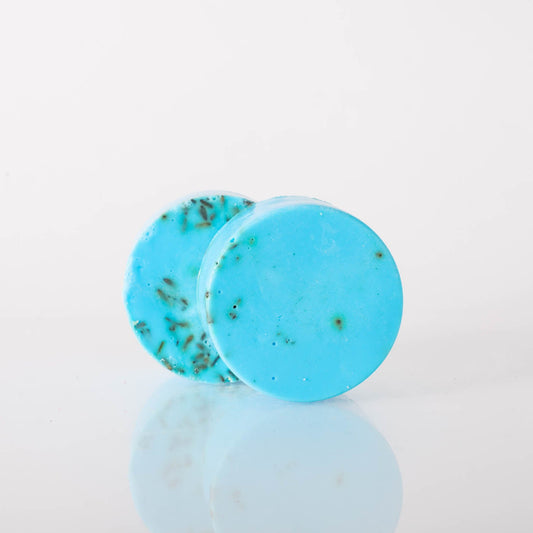-

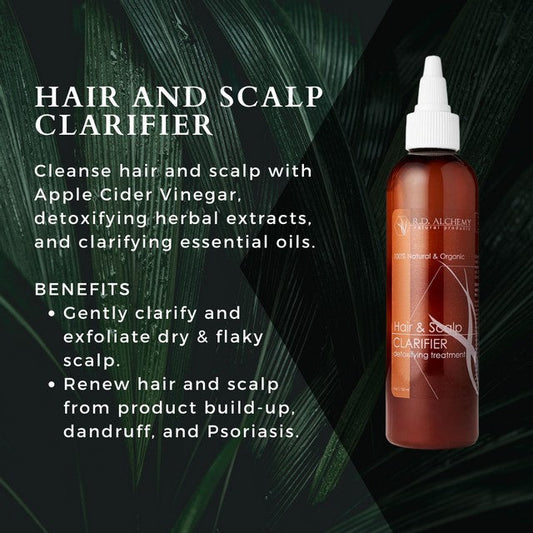 Sold out
Sold outHair and Scalp Clarifier
Regular price $44.53 USDRegular priceUnit price / per -
Addicted Beauty Reset Natural Hair Oil
Regular price $32.95 USDRegular priceUnit price / per -
NAPURA Anti Dandruff Bundle (Shampoo and Scalp Lotion)
Regular price From $49.35 USDRegular priceUnit price / per$50.30 USDSale price From $49.35 USDSale -
Organic Hair Care Kit
Regular price From $37.00 USDRegular priceUnit price / per -
Dandruff Shampoo Bar
Regular price $18.96 USDRegular priceUnit price / per
Collection: Dandruff
Dandruff Shampoo for Men: No More Flakes - How to Easily Manage Dandruff with Shampoo and Scalp Oil
Fellas, let’s talk about a little problem that tends to snow on our shoulders more often than we’d like—dandruff. Yep, those pesky little flakes that always seem to show up when you’re wearing your favorite black shirt. While dandruff might seem like an unwelcome guest that never leaves, it’s actually pretty easy to manage with the right tools in your grooming arsenal, including anti dandruff shampoos. Let’s dive into how you can say goodbye to the flakes and hello to a healthy scalp with some awesome shampoo and scalp oil tips.

What Is Dandruff, Anyway?
Before we jump into the solutions, it’s good to know what we’re dealing with. Dandruff happens when your scalp sheds excess skin cells. This could be due to dryness, an oily scalp, excess oil production, or even a little skin yeast (yep, that’s a thing). It’s totally normal, but it can get annoying if not handled properly.
Dandruff-Control with Anti Dandruff Shampoo: Your First Line of Defense
Using the right shampoo is your #1 weapon in the war against dandruff. A lot of regular shampoos just won’t cut it, especially if you’re dealing with a stubborn case of flakes. What you need is the best anti dandruff shampoo that packs a punch. Here’s how to do it right:
1. Pick the Right Shampoo
Look for a shampoo for men with active ingredients like zinc pyrithione, salicylic acid, or ketoconazole. These ingredients are pros at fighting dandruff because they target the root of the problem—whether it’s oily buildup, dryness, or that sneaky yeast (hello, Malassezia!). A good anti-dandruff shampoo keeps things balanced on your scalp.

2. Consistency is Key
Using anti-dandruff shampoo isn’t a one-and-done deal. You’ve gotta stay consistent, bro, regardless of your hair types. Use it every time you wash your hair (2-3 times a week for most men) to keep your scalp flake-free. Don’t go overboard though—washing your hair too often can dry out your scalp, which could make things worse.
3. Lather and Let it Sit
Here’s a pro tip: Don’t just slap the shampoo on wet hair and rinse it off right away. For maximum effect, massage it into your scalp and let it sit for a couple of minutes. This gives the active ingredients time to do their thing. After all, you don’t just sprint through a workout and expect abs, right?
4. Rinse with Cool Water
When it’s time to rinse, go for cooler water. Super hot water can strip the natural oils from your scalp, and trust us, that’s not going to help the situation. Cool water helps soothe your scalp and leaves your hair feeling fresh.
Bring in the Big Guns: Scalp Oils to the Rescue
Scalp oil for dandruff is great, but if you want to take your dandruff game to the next level, it’s time to introduce scalp oil into the mix. Yes, adding oil to your scalp sounds weird, but hear us out—it’s all about balance. A healthy scalp needs moisture, and scalp oils provide hydration without leaving you greasy.
Choose Your Fighter: Tea Tree Oil, Coconut Oil, or Argan Oil for Dandruff
- Tea Tree Oil: This oil is the king of anti-dandruff oils. Its antifungal properties help fight dandruff at the root while also soothing irritation. Additionally, tea tree oil is effective for individuals with oily hair. A few drops mixed into your regular shampoo or applied directly to your scalp can work wonders in managing oiliness.
- Coconut Oil: This all-rounder helps to moisturize and soothe dry, flaky scalps. Warm a little up, massage it in, leave it on for about 30 minutes, and wash it out. Your scalp will feel nourished and smooth.
- Argan Oil: Known for its high vitamin E content, argan oil helps to hydrate your scalp while repairing damaged hair. It’s a lighter option if you don’t want a greasy feel.

2. The Benefits of Scalp Oil
Scalp oil is a game-changer for men’s hair care, offering a multitude of benefits that can transform the health and appearance of your scalp and hair. One of the most significant advantages of using scalp oil is its ability to combat dry scalp and dandruff. By applying a scalp oil rich in ingredients like tea tree oil, aloe vera, and argan oil, you can help to soothe and calm an itchy scalp, reducing the appearance of dry scalp flakes and promoting a healthier scalp environment.
Tea tree oil, for instance, is renowned for its anti-inflammatory properties, making it a top choice for tackling dandruff and irritation. Aloe vera, on the other hand, is a natural moisturizer that hydrates the scalp, leaving it feeling refreshed and less prone to flaking. And let’s not forget argan oil, which is packed with antioxidants and essential fatty acids that nourish and protect your scalp.
Using scalp oil regularly can also help to balance your scalp’s natural oil production. This means less excess oil and fewer flakes, giving you a cleaner, healthier scalp. Plus, it’s a great way to add some extra shine and softness to your hair, making it look and feel its best.
2. How to Apply Scalp Oil
After you’ve washed and towel-dried your wet hair, apply a few drops of scalp oil and gently massage it in. If your dandruff tends to be more severe, you can leave the oil on overnight for deep hydration (just throw a towel on your pillow to avoid any mess).
3. Oil and Shampoo Combo
Another easy way to use scalp oils is by mixing a few drops into your best anti dandruff shampoo. This combo keeps your scalp hydrated while the shampoo tackles the flakes. It’s like giving your scalp the best of both worlds!
Managing Dry Scalp
Managing dry scalp requires a combination of the right hair care products and techniques. One of the most effective ways to combat dry scalp is to use an anti-dandruff shampoo that contains ingredients like salicylic acid, which helps to exfoliate the scalp and remove dead skin cells. In addition to using an anti-dandruff shampoo, applying a scalp oil can help to lock in moisture and reduce dryness and itchiness.
When choosing a scalp oil, look for ingredients like tea tree oil, which has anti-inflammatory properties that can help to soothe and calm the scalp. Aloe vera is another ingredient that can help to moisturize and hydrate the scalp, reducing the appearance of dry scalp flakes.
For men with fine hair, using a lightweight scalp oil can help to add moisture and hydration without weighing the hair down. For men with dry hair, a richer scalp oil can help to lock in moisture and reduce dryness and brittleness.
In addition to using a scalp oil, there are several other techniques that can help to manage dry scalp. One of the most effective ways to combat dry scalp is to use a gentle shampoo that is formulated for your hair type. Avoid using hot water, which can strip the scalp of its natural oils, and instead use warm water to shampoo and condition your hair.
Regularly massaging your scalp can also help to increase blood flow and reduce tension, which can help to promote a healthier scalp environment. By combining these techniques with the use of a scalp oil, you can help to manage dry scalp and promote a healthier, more balanced scalp environment.
Some popular scalp oils for managing dry scalp include:
- Tea Tree Oil: Known for its anti-inflammatory properties, tea tree oil can help to soothe and calm an itchy scalp.
- Aloe Vera: A natural moisturizer, aloe vera can help to hydrate and soothe the scalp.
- Argan Oil: Rich in antioxidants and essential fatty acids, argan oil can help to nourish and protect the scalp.
- Olive Oil: A natural moisturizer, olive oil can help to hydrate and soothe the scalp.
When choosing a scalp oil, look for ingredients that are natural and gentle, and avoid products that contain harsh chemicals or artificial fragrances. By using a scalp oil and combining it with gentle hair care techniques, you can help to manage dry scalp and promote a healthier, more balanced scalp environment.
Healthy Scalp Habits
In addition to the dynamic duo of shampoo and scalp oil, adopting a few healthy scalp habits for all hair types will go a long way toward keeping dandruff at bay:
- Stay Hydrated: Drinking water isn’t just good for your muscles and mind; it’s also great for your scalp. Hydrated skin means less dryness and fewer flakes.
- Avoid Stress: Yeah, easier said than done, but stress can mess with your scalp’s oil production. Keeping stress in check with exercise, meditation, or just taking time for yourself can help reduce flare-ups.
- Don’t Scratch: We know dandruff can be itchy, but scratching only makes it worse. Try massaging your scalp gently instead.
Conclusion: You Got This!
Dandruff doesn’t stand a chance when you’ve got the right shampoo for men, scalp oil, and a solid routine. With consistency, you’ll be flake-free in no time. So, the next time you see those little white flakes, don’t sweat it—just grab your trusty shampoo, oil up, and show that dandruff who’s boss. Your scalp (and your favorite black shirt) will thank you!



